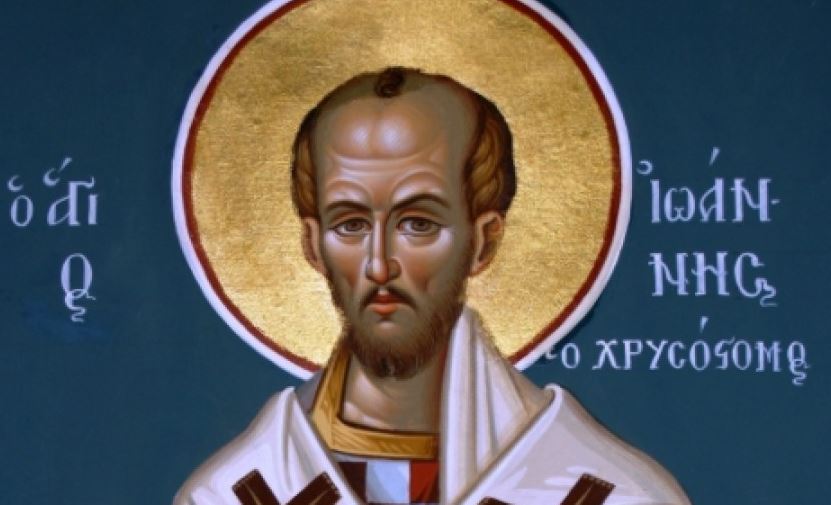
Is it not excessively ridiculous to seek the good opinion of those whom you would never wish to be like?
– Homilies on the Gospel of Saint John, Homily III
Today is the feast day of St. John Chrysostom, one of the greatest preachers who ever walked the earth.
During a time when city clergy were subject to much criticism for their high lifestyle, St. John was determined to reform his clergy at Constantinople. These efforts were met with resistance and limited success.
He was particularly noted as an excellent preacher. As a theologian, he has been and continues to be very important in Eastern Christianity, but has been less important to Western Christianity. He generally rejected the contemporary trend for emphasis on allegory, instead speaking plainly and applying Bible passages and lessons to everyday life. In some ways, he represents a sort of synthesis between the hermeneutic methods of the more allegorical Alexandrian School and the more literal Antiochian School.
His banishments demonstrated that secular powers had strong influence in the eastern Church at this period in history. They also demonstrated the rivalry between Constantinople and Alexandria, both of which wanted to be recognized as the preeminent eastern see. This mutual hostility would eventually lead to much suffering for the Church and the Eastern Empire. Meanwhile in the West, Rome’s primacy had been unquestioned from the fourth century onwards. An interesting point to note in the wider development of the papacy is the fact that Innocent’s protests availed nothing, demonstrating the lack of influence the bishops of Rome held in the East at this time. His relics were stolen from Constantinople by Crusaders in 1204 (commemorated on January 27) and brought to Rome, but were returned on November 27, 2004, by Pope John Paul II.
